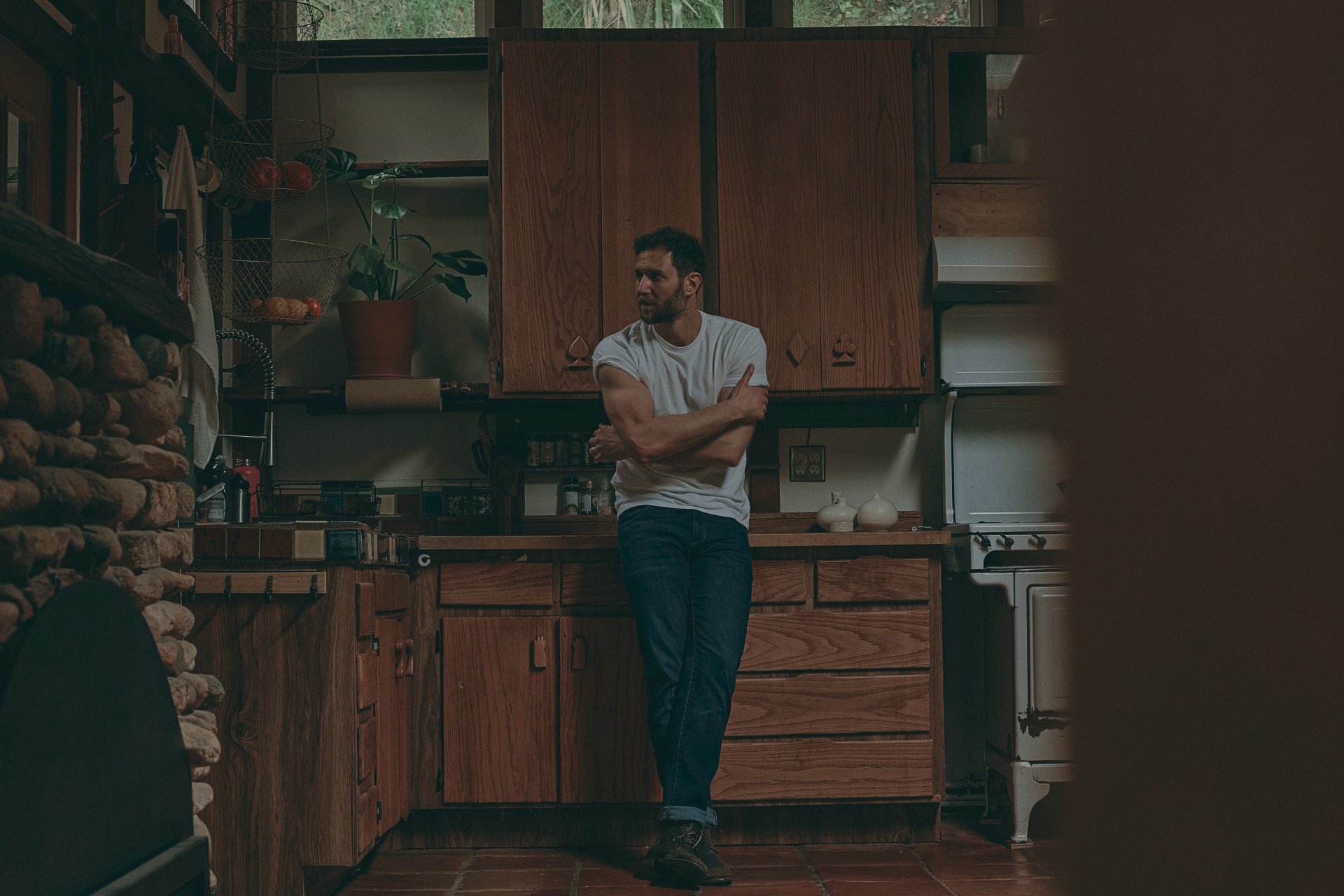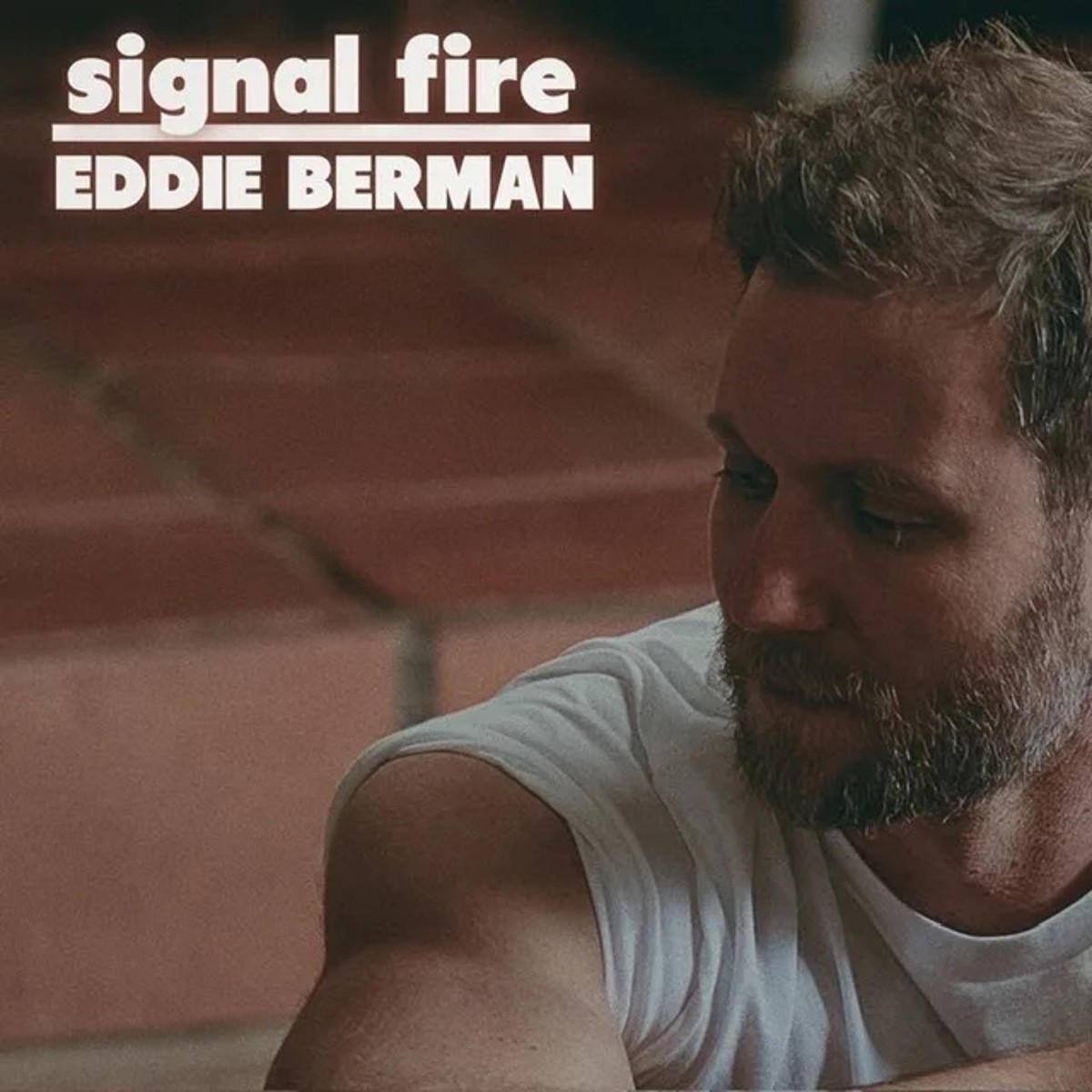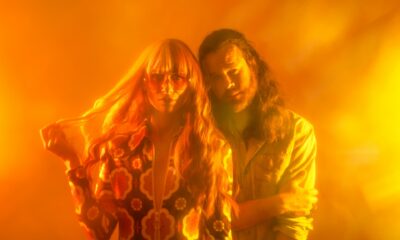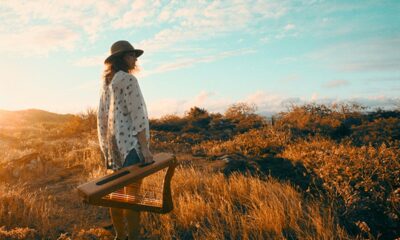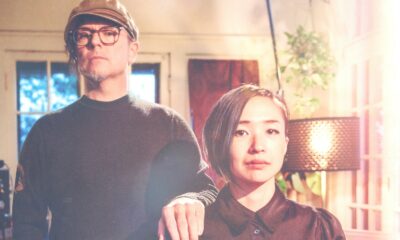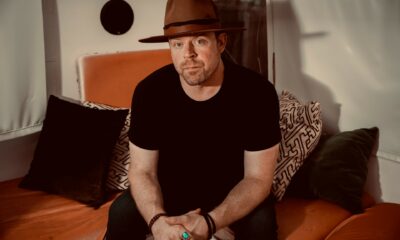Folk
Eddie Berman Discusses Playing Live, the Creative Process, and Musical Influences
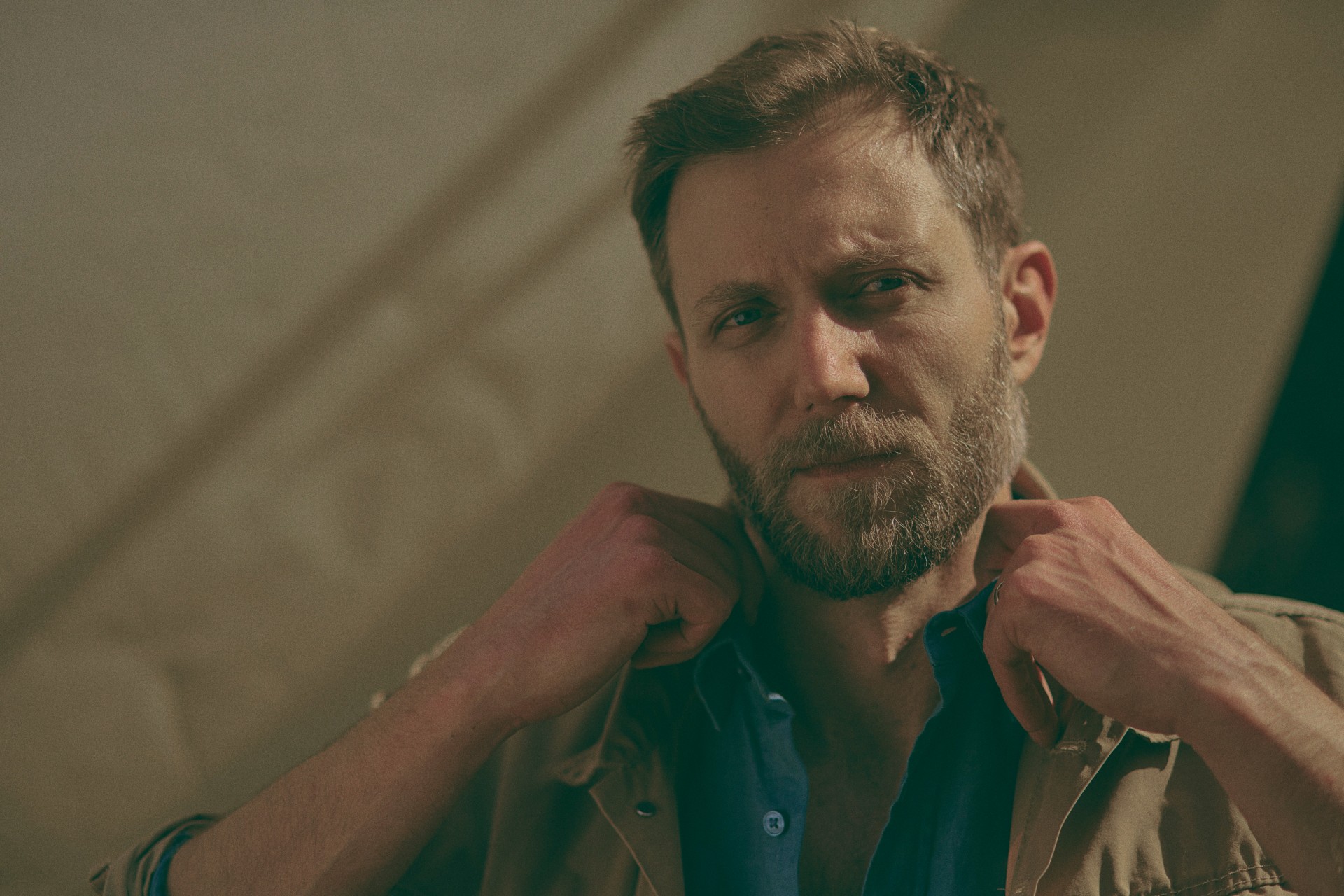
As Eddie Berman can attest, there’s just something about that live feeling, which is where all the magic lies. Berman released his brand new album, Signal Fire, last week via Nettwerk Music. It’s the follow-up to Broken English and represents some of Berman’s finest work yet. With the various lockdowns in effect in 2020, Berman recorded Broken English remotely. It was a drastic change to the way he previously recorded which was always live in studio. There was a certain comfort in being able to record remotely, so it seemed like a good idea for Signal Fire as well.
When Berman began rehearing in person with his band for the upcoming remote recording process, he quickly realized he had it all wrong. He realized that the whole purpose of his music laid within feeling connected and a certain zest for life. It occurred to him that to record remotely would be doing a disservice to himself and his music. He hadn’t seen many of his band members in person in two years. You can’t record an album about emerging from a period of isolation while being isolated yourself. Fortunately, Berman made the right choice and has come up with a record full of passion and life.
We recently connected with Berman in the fall for a chat about Signal Fire. Today, we reconnect for a follow-up conversation about the creative process, musical influences, and playing live.
How would you describe your creative process?
Eddie Berman: “There’s a Taoist concept called Wu Wei, which means something like ‘effortless action’ where you use the natural flow of things to aid in what you’re doing. It’s like the difference between using a sail vs a paddle to move about. I really only write when I feel that weird compulsion to do it. I start by noodling on the guitar and coming up with melodies.
“When I have something I like, I record it on my phone and sing gibberish over it. And then, when I feel the separate kind of compulsion to write lyrics (sometimes months later), I comb through all the melody/guitar parts I’ve recorded and find one that feels right for that day. When it’s going right there is an effortless kind of feel to it, and all of a sudden I realize I have an album worth of songs that seem to have just materialized.”
Who are your biggest influences?
“Musically, it’s people like Bob Dylan and Leonard Cohen and great finger pickers like Dave Van Ronk and Mississippi John Hurt. And I think I’m also influenced by writers like John O’Donohue, Annie Dillard, and Alan Watts.”
Tell us more about Signal Fire. What was your experience of making it? What went on behind the scenes? Any notable moments that stand out?
“I made my last album, Broken English, remotely during all the lockdown craziness of 2020. I had only ever recorded albums totally live before that, but the remote recording was surprisingly fun. It was nice not having to leave my wife and kids and being able to be a bit more discerning about things. And there was a part of me that thought maybe I’d record all my albums remotely from now on. But after flying down to Los Angeles to rehearse the new Signal Fire songs with my bandmates, it was like a fog lifting immediately. I realized how insane that idea was. This type of music isn’t supposed to be discerning; it’s supposed to feel alive. So we recorded all 13 tracks over just three days live in the studio.”
What do you like most about playing music?
“Since I picked up the guitar, it’s always been a very meditative thing for me. It’s tricky when you make your profession out of the main thing that brings you a sense of peace and calm. Mixing that thing with commerce can maybe rob it of its meditative powers. But I think maintaining that Wu Wei keeps it from getting too stale and mechanical.”
What’s the best show you’ve ever played?
“About a decade ago, I played a part of Laura Marling’s Secret Cinema residency in London. It was a full month of the strangest but coolest shows. They turned a big abandoned school into a place that looked like The Overlook Hotel from The Shining. Everyone showed up in a black tie. There were rooms and rooms of beautiful, weird things going on. We played songs on balconies for the whole crowd, and then later, we also played in a pitch-black cellar for just one or two random people each night. I’ve played some great festivals and theatres, but nothing as remotely interesting as that.”
Is there anywhere you would like to go that you have not been?
“I’ve always wanted to visit Japan. I’d love to go play some shows over there and then just travel all around the country.”
If you were stranded on a deserted island and could only take three CDs with you for eternity (assuming there was a solar-powered CD player), what would they be?
“I think with all that time on a desert island, I’d want some audiobooks. Something like You’re It by Alan Watts, Beauty by John O’ Donohue, and then maybe Don Quixote since it’s so great and like 50 hours long…”
If you had an unlimited budget, where and with whom would you record your record? What about production and mastering? And why?
“I’ve realized that the quick & dirty way I record these albums, totally live with my friends and bandmates, and our longtime collaborator Pierre De Reeder at his studio, 64 Sound, is exactly how I want to keep making music. So I think no matter the budget, I’ll keep on keeping on.”
-

 Music1 week ago
Music1 week agoTake That (w/ Olly Murs) Kick Off Four-Night Leeds Stint with Hit-Laden Spectacular [Photos]
-

 Alternative/Rock2 days ago
Alternative/Rock2 days agoThe V13 Fix #011 w/ Microwave, Full Of Hell, Cold Years and more
-

 Alternative/Rock1 week ago
Alternative/Rock1 week agoThe V13 Fix #010 w/ High on Fire, NOFX, My Dying Bride and more
-

 Features1 week ago
Features1 week agoTour Diary: Gen & The Degenerates Party Their Way Across America
-

 Culture1 week ago
Culture1 week agoDan Carter & George Miller Chat Foodinati Live, Heavy Metal Charities and Pre-Gig Meals
-

 Music1 week ago
Music1 week agoReclusive Producer Stumbleine Premieres Beat-Driven New Single “Cinderhaze”
-

 Indie2 days ago
Indie2 days agoDeadset Premiere Music Video for Addiction-Inspired “Heavy Eyes” Single
-

 Alternative/Rock2 weeks ago
Alternative/Rock2 weeks agoThree Lefts and a Right Premiere Their Guitar-Driven Single “Lovulator”

